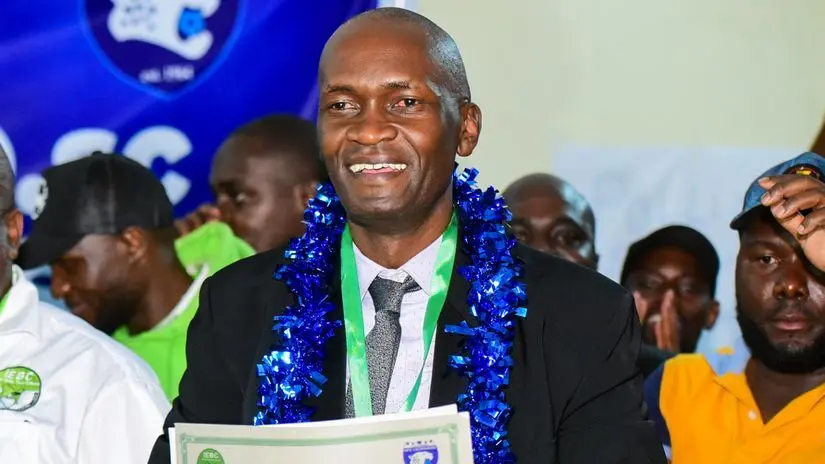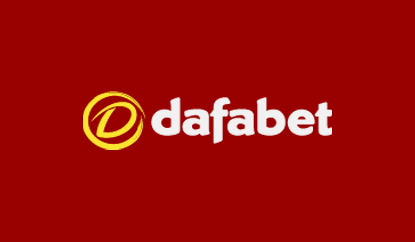The story of AFC Leopards Internal Challenges is layered, stretching from boardroom transitions to a bumpy start on the pitch, and threaded with public claims that have tested unity inside one of Kenya’s most storied clubs. In recent months, Ingwe have navigated leadership change, social media storms, and performance pressure, all while trying to reclaim stability and a winning identity.
From election fever to a new chair
By April, an intense campaign had taken shape ahead of the club’s Annual General Meeting slated for June 29, with five figures stepping forward for the chair. The field featured former international Boniface Ambani, outgoing treasurer Oliver Napali, former club CEO Ronald Namayi, U-45 branch chairman Olympia Musonye and former Commercial Director Enosh Mutoka, a slate that signaled both continuity and appetite for change.
The Secretary General race was also competitive, with respected human resource expert Asava Kadima joining Robert Situma, Jesse Tetei and Irene Wekesa, while then Secretary General Gilbert Andugu confirmed the aspirants and announced he would not defend his seat, a move that widened the leadership transition.
Andugu extended membership renewal from March 31 to April 29 to give supporters time to update registration ahead of the AGM, with renewals listed at Sh1,000 and new registrations at Sh1,200, a procedural but important step in opening the door for a broader base to shape Ingwe’s future.
A new voice at the top and a vow to steady the ship
Boniface Ambani was elected chairman in June, and in October he confronted a wave of online speculation about internal wrangles. Speaking after Ingwe’s exit from the ODM@20 Tournament in Mombasa, he rejected claims of disunity, framed his agenda around rebuilding integrity, and cast the chatter as pushback from those uneasy with tightened oversight.
“This is what happens when all taps have been closed, they’ll fight back. In God I trust,” Ambani said, positioning accountability as a non-negotiable plank of his leadership.
Ambani specifically addressed a viral post that alleged a rift between club CEO Ronald Namai and Secretary General Isaac Mulindi, insisting the leadership remains united and that efforts to split the office had failed, a message aimed at calming supporters and the dressing room.
Early results and the weight of expectation
On the pitch the start of the Football Kenya Federation Premier League has been uneven, with the 1998 champions still chasing a first win after four rounds and only two draws to show for their effort, results that echo the turbulence around the club and heighten the pressure on a young squad.
In the immediate aftermath of the ODM@20 Tournament, where Leopards finished fourth after losses to Bandari and Shabana, tensions seemed to spill into public view, a reminder of how quickly performance narratives can feed into boardroom debates and back again.
Former Team Manager Benard Onyango urged patience and perspective, describing Ambani as a youthful and strategic leader who needs time to lay foundations, and arguing that the squad’s inexperience is a growth opportunity rather than a ceiling.
“In this short period, the only thing that can turn things around is giving leadership time. Bonny is a young leader and a good planner,” Onyango told Mozzart Sport, before warning that internal divisions could undo the project.
Inside the human stories that define a transition
Nothing captures the emotional undercurrents of a football rebuild more than a player’s exit. Former goalkeeper Levis Opiyo, once a fan favorite, left after his contract expired and joined Bandari for the 2025-26 season, then faced his former club in Mombasa and impressed in a penalty triumph despite limited preparation.
In a candid interview, he said his departure stemmed from issues that went beyond football. He claimed that three members of management were against him and that he struggled with tribal undertones over several years, allegations that add a sensitive dimension to the conversation around culture and inclusivity.
“I left because three of the management members were against me. It was all tribal for me,” Opiyo said, adding that he had confronted similar challenges even under previous administrations.
Opiyo also framed Leopards as a community club he still respects and did not rule out a return in the future, a sentiment that underscores how complex these breaks can be for players who built strong bonds with supporters and teammates over time.
Leadership messages and the call for unity
Ambani’s public stance is that the leadership is intact and focused, that financial accountability is non-negotiable, and that smear campaigns will not dictate the agenda, a position meant to keep players shielded and supporters aligned behind a long-term plan.
Onyango echoed that patience is essential, asking supporters to give the new office two to three years before demanding trophies. He praised the youthful core and predicted that continuity and mentorship could transform the group into a resilient, competitive unit if the club stays the course.
“If you look at AFC, they are small kids, the majority of them. They’re going to do wonders. AFC will be a rock if they continue with the culture being cultivated,” Onyango said, before stressing that rubbing shoulders with the chairman would stall progress.
The pressure points and why they matter now
Several threads are tugging at Ingwe’s fabric at once, and how the club navigates them will define the season. The fresh mandate at the top, the public scrutiny following ODM@20, and the early league results have converged to create a moment that requires clarity and togetherness.
- There is the need to stabilize governance after a competitive election cycle,
- there is the task of insulating a youthful squad while results lag,
- there is the imperative to address cultural concerns with sincerity and action.
Each of these areas links directly to trust. Supporters want visibility into decisions and confidence that football priorities are guiding them, players want a consistent environment that rewards performance, and leaders want the latitude to implement changes without constant firefighting.
Context from the campaign trail
The leadership pivot began when incumbent chairman Dan Shikanda became ineligible to vie after serving two terms from 2019 to 2025, a term limit that opened the door to new voices. The line-up of chair aspirants reflected competing philosophies, from administration veterans to branch leadership figures and a former national team striker in Ambani.
Andugu’s role in confirming the aspirants and steering logistical steps like the membership renewal extension signaled a process-oriented transition. His decision not to defend the Secretary General seat also widened the reshuffle, inviting a new cadre of administrators to step forward.
These mechanics matter because they set the tone for how authority is earned and exercised. A clean, inclusive process can anchor legitimacy when performances wobble, and legitimacy buys time during the inevitable dips that come with rebuilding.
| CASINO | BONUS | INFO | RATING | |
|---|---|---|---|---|
|
bonus
90 free spins weekly!
See 4 Bonuses
|
info
OGL/2024/137/0132 secure platform with top casino games & bonuses. |
|||
|
bonus
50% welcome bonus up to KES 1,000
See 3 Bonuses
|
info
|
|||
|
bonus
500% bonus on first 4 deposits!
See 5 Bonuses
|
info
10 crash games, mobile-first site, 500% welcome bonus BK 000678 |
|||
|
bonus
Sign up for KES 46 bonus after first deposit!
See 11 Bonuses
|
info
20+ crash & instant games, Aviator bonuses BK 0000704 |
Performance scrutiny and the Ambani connection
As results stalled, attention naturally turned to the technical bench. The social media post that targeted the chairman, his brother and head coach Fred Ambani, and other officials, captured how swiftly a slow start can escalate into a broader narrative about leadership, a pattern familiar across big clubs.
Ambani’s counter was clear, he says the office is united and determined to protect the club from financial misuse, and he framed the noise as the cost of shutting off avenues that harmed the institution, a hard line that will likely define his tenure.
For the dressing room, that clarity must translate into day to day calm. Young players need a runway to improve, and the FKF Premier League can be unforgiving. The early draws against Sofapaka and Posta Rangers were glimpses of potential and vulnerability in equal measure, a mix that demands patience from the stands.
What a credible path forward looks like
Progress will be measured in small wins. A first league victory to ease the table, gradual tightening of defensive habits, more cohesive chance creation, and a clear player development plan, these are the markers that supporters can see and buy into.
From the boardroom to the training ground, the priorities are aligned only when communication is consistent. Transparent updates on structures and culture, acknowledgment of mistakes without defensiveness, and a willingness to hear hard truths from within the community can accelerate trust, even before trophies return.
Voices like Onyango’s are reminders that long projects need room to breathe. His faith in Ambani’s planning and his warning against internal friction place the responsibility not just on leaders, but on everyone who shapes the daily rhythm of the club.
The human stakes behind the badge
The Levis Opiyo chapter brought to light concerns that call for thoughtful response. His claims of tribal bias, and his five year fight with such issues, as he described them, add urgency to the push for inclusive culture across Kenyan football, a goal he championed even as he moved on to Bandari.
“The club belongs to the community, not individuals. Maybe one day, I will go back,” he said, calling for reforms to ensure unity and fairness.
When Ambani speaks about integrity and closing the taps, and when a former manager argues for patience and unity, the common thread is a desire to make the badge mean more than short term results, a higher bar that is tested most in moments like this one.
Why Ingwe’s response now will echo for years
AFC Leopards remain one of the pillars of Kenyan football, and that status carries responsibility. How the club manages internal claims, lifts a young team through a tricky start, and builds on the mandate secured in June will set the tone not only for this season but for the identity it wants to project.
There is room for optimism because the ingredients are visible, a chairman with a clear stance on accountability, a youthful squad with potential, and a fan base that shows up in big moments. Turning those ingredients into a durable recipe requires patience and resolve, the very qualities now being asked of everyone tied to Ingwe.
For now, the task is simple to state and complex to execute, keep the noise outside the dressing room, turn draws into wins in the FKF Premier League, and keep building the structures that outlast a single season. If that balance holds, the story of this period may read less as a crisis and more as the start of a rebuild with strong foundations.










